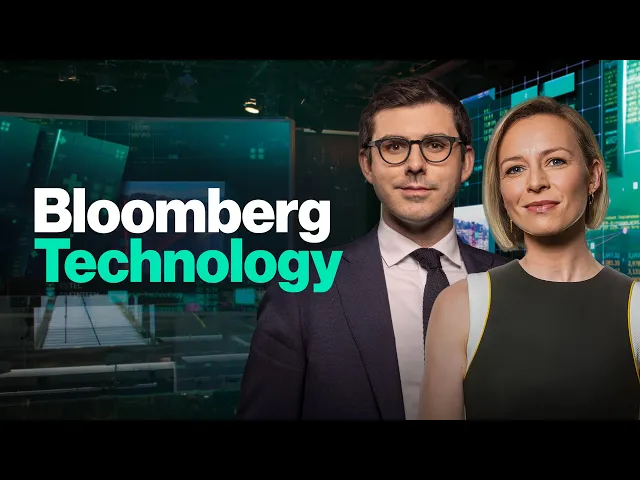Nvidia Opens AI Ecosystem to Rivals, Apple AI Struggles

Nvidia adapts as AI market faces fierce competition
In a strategic pivot that's reshaping the AI landscape, Nvidia is opening its ecosystem to competitors while tech giants like Apple struggle to find their footing in the generative AI race. A recent Bloomberg Technology interview with analyst Tae Kim illuminated how the AI chip leader is navigating competitive pressures while maintaining its dominant position. This shift represents not just a change in business strategy, but potentially signals a new phase in the maturation of the AI market.
Key insights from the analysis:
-
Nvidia is proactively adapting to competitive pressure by opening its CUDA ecosystem to alternative chips, allowing its software to run on rival hardware—a significant departure from its previously closed approach.
-
Despite growing competition from AMD, Intel, and custom chips from cloud providers, Nvidia maintains substantial advantages through its full-stack integration of hardware, software, and developer ecosystem.
-
Apple faces significant challenges in generative AI development, with its latest offerings falling short of competitors and potentially requiring radical changes to its approach to silicon design.
The most compelling takeaway from this analysis is Nvidia's calculated risk in opening its ecosystem. This move acknowledges competitive realities while leveraging Nvidia's true strength—its software platform and developer ecosystem. Rather than trying to maintain hardware exclusivity at all costs, Nvidia is betting that becoming the standard software layer for AI development provides a more sustainable competitive advantage.
This shift matters profoundly because it potentially transforms the AI chip market from a pure hardware play to a platform competition. By allowing its software to run on other chips, Nvidia is essentially saying, "Our value isn't just in silicon—it's in our entire platform." In an industry increasingly dominated by software-defined advantages, this positions Nvidia to maintain relevance even as hardware commoditizes or specializes.
What the analysis doesn't explore fully is the parallel to other technology platform battles. Microsoft's dominance wasn't ultimately about PC hardware but Windows as a platform. Similarly, Apple's success isn't primarily about device specifications but its integrated ecosystem. Nvidia appears to be following this established playbook—create developer lock-in through superior tools and ecosystem benefits, then monetize that platform advantage regardless of the underlying hardware.
A fascinating case study that illustrates this dynamic is Qualcomm's earlier attempt to challenge Nvidia in the mobile GPU space. Despite competitive hardware
Recent Videos
How To Earn MONEY With Images (No Bullsh*t)
Smart earnings from your image collection In today's digital economy, passive income streams have become increasingly accessible to creators with various skill sets. A recent YouTube video cuts through the hype to explore legitimate ways photographers, designers, and even casual smartphone users can monetize their image collections. The strategies outlined don't rely on unrealistic promises or complicated schemes—instead, they focus on established marketplaces with proven revenue potential for image creators. Key Points Stock photography platforms like Shutterstock, Adobe Stock, and Getty Images remain viable income sources when you understand their specific requirements and optimize your submissions accordingly. Specialized marketplaces focusing...
Oct 3, 2025New SHAPE SHIFTING AI Robot Is Freaking People Out
Liquid robots will change everything In the quiet labs of Carnegie Mellon University, scientists have created something that feels plucked from science fiction—a magnetic slime robot that can transform between liquid and solid states, slipping through tight spaces before reassembling on the other side. This technology, showcased in a recent YouTube video, represents a significant leap beyond traditional robotics into a realm where machines mimic not just animal movements, but their fundamental physical properties. While the internet might be buzzing with dystopian concerns about "shape-shifting terminators," the reality offers far more promising applications that could revolutionize medicine, rescue operations, and...
Oct 3, 2025How To Do Homeless AI Tiktok Trend (Tiktok Homeless AI Tutorial)
AI homeless trend raises ethical concerns In an era where social media trends evolve faster than we can comprehend them, TikTok's "homeless AI" trend has sparked both creative engagement and serious ethical questions. The trend, which involves using AI to transform ordinary photos into images depicting homelessness, has rapidly gained traction across the platform, with creators eagerly jumping on board to showcase their digital transformations. While the technical process is relatively straightforward, the implications of digitally "becoming homeless" for entertainment deserve careful consideration. The video tutorial provides a step-by-step guide on creating these AI-generated images, explaining how users can transform...
